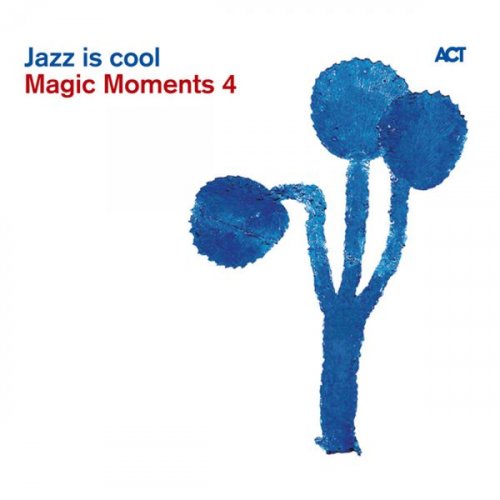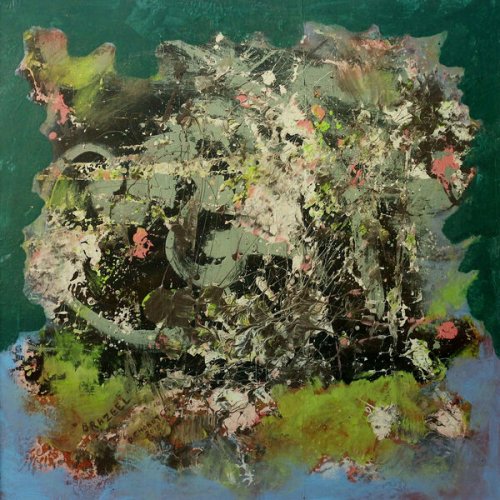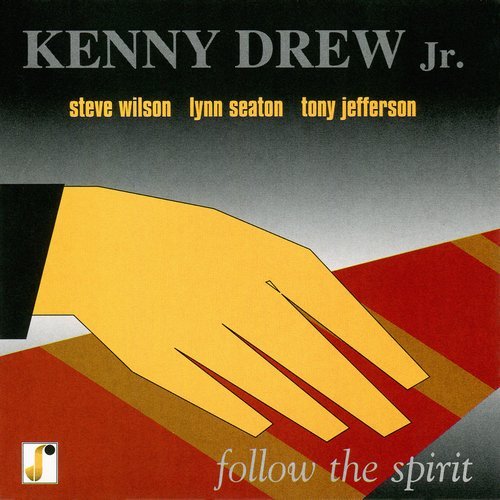Masada Quintet featuring Joe Lovano / plays Masada Book Two - Stolas: The Book of Angels, Vol. 12 (2009)

Artist: Masada Quintet featuring Joe Lovano / plays Masada Book Two
Title: The Book of Angels, Vol. 12
Year Of Release: 2009
Label: Tzadik
Genre: Klezmer Jazz
Quality: MP3 / 320 kbps | FLAC (tracks)
Total Time: 1:03:02
Total Size: 144 MB | 351 MB
WebSite: Album Preview
Tracklist:Title: The Book of Angels, Vol. 12
Year Of Release: 2009
Label: Tzadik
Genre: Klezmer Jazz
Quality: MP3 / 320 kbps | FLAC (tracks)
Total Time: 1:03:02
Total Size: 144 MB | 351 MB
WebSite: Album Preview
1. Haamiah (04:20)
2. Rikbiel (05:48)
3. Psisya (08:27)
4. Sartael (04:51)
5. Tashriel (04:04)
6. Rahtiel (07:56)
7. Tagriel (13:30)
8. Serakel (05:09)
9. Rigal (08:59)
Stolas is the 12th volume in John Zorn's Book of Angels series of compositions. It's a welcome and compelling idea that he decided to re-form his stellar Masada quintet for the occasion -- sort of. In addition to the rhythm section of Joey Baron and Greg Cohen, trumpeter Dave Douglas, and pianist Uri Caine, Zorn enlisted tenor sax giant Joe Lovano to replace him on all but one cut where he adds his alto, making the group a sextet. According to Aleister Crowley's The Book of the Goetia of Solomon the King, Stolas is the 36th prince of hell, commanding 26 legions of demons. He appears either as an owl or a man who teaches astronomy and the virtues of herbs and precious stones. His zodiac sign is Pisces, and his tarot card is the ten of cups. That may be so, but this music has more to do with angels than demons. Since the early Masada recordings on Avant, the group's individual members have become top-flight players, improvisers, bandleaders, and sidemen in their own right. Lovano was there long before all of them. But something happened to the free-flowing, wildly kinetic group inspired by Ornette Coleman's original quintet, and something has indeed "happened" to John Zorn. They all became outrageously great jazzmen. The rhythm section, both collectively and individually, now consists of some of the most in-demand sidemen on a wildly diverse array of projects; Douglas and Caine have been leading their own groups for decades; and Zorn has become a prolific composer of film scores and string quartets, and he writes for any number of other configurations as one of the most in-demand composers in the world. All of that is born out on Stolas, the single most beautiful album in the Book of Angels series so far -- and, one might argue, in the entirety of the Masada catalog.
Here Latin jazz, klezmer, Yiddish folk music, bossa nova, and other Latin jazz all come together in a seamless meld of tunes that accent the symmetry of ensemble play as much as they do an extremely advanced sense of ensemble harmonics, rhythmic invention, and, of course, tautly arranged spaces for individual improvisation -- check out the album's longest cut, "Tagriel," for evidence as Zorn's composition not only travels genres but centuries. The popping showcase for solos that is "Serakel" is nonetheless a grooving post-bop tune with a joyous klezmer lyric line. The sheer shimmering beauty of "Psisya," which moves from jazz ballad to bossa to Hebrew folk song and back again, is stunning. Lovano, being such a master of his instrument, is a wonderful addition to this group because of his ability to meld into any kind of ensemble whether it be a trio or an orchestra. This intimate setting provides a great showcase for his lyric sensibilities and his elegant tone with its big bottom end to shine. And that's just to name two of these nine amazing tracks. While Stolas is not completely "inside," it is far more so than most have a right to expect. For newcomers to Zorn's music, this may not sound typical of his dozens of other records, but it is a great place to start. For the veteran Zorn or Masada listener, or even those following closely the development of the Book of Angels series, you already knew this was possible, but hearing the physical evidence of it is nothing short of thrilling.
Here Latin jazz, klezmer, Yiddish folk music, bossa nova, and other Latin jazz all come together in a seamless meld of tunes that accent the symmetry of ensemble play as much as they do an extremely advanced sense of ensemble harmonics, rhythmic invention, and, of course, tautly arranged spaces for individual improvisation -- check out the album's longest cut, "Tagriel," for evidence as Zorn's composition not only travels genres but centuries. The popping showcase for solos that is "Serakel" is nonetheless a grooving post-bop tune with a joyous klezmer lyric line. The sheer shimmering beauty of "Psisya," which moves from jazz ballad to bossa to Hebrew folk song and back again, is stunning. Lovano, being such a master of his instrument, is a wonderful addition to this group because of his ability to meld into any kind of ensemble whether it be a trio or an orchestra. This intimate setting provides a great showcase for his lyric sensibilities and his elegant tone with its big bottom end to shine. And that's just to name two of these nine amazing tracks. While Stolas is not completely "inside," it is far more so than most have a right to expect. For newcomers to Zorn's music, this may not sound typical of his dozens of other records, but it is a great place to start. For the veteran Zorn or Masada listener, or even those following closely the development of the Book of Angels series, you already knew this was possible, but hearing the physical evidence of it is nothing short of thrilling.
![David Hillyard & The Rocksteady Seven - Home For Dinner (2026) [Hi-Res] David Hillyard & The Rocksteady Seven - Home For Dinner (2026) [Hi-Res]](https://img.israbox.com/img/2026-02/19/i90pm6wt5icib19ylzpzq7dyv.jpg)




![Joe Pass - Virtuoso (1974) [2025 DSD256] Joe Pass - Virtuoso (1974) [2025 DSD256]](https://www.dibpic.com/uploads/posts/2026-02/1771609997_ff.jpg)


![Dominique Fils-Aimé - My World Is The Sun (2026) [Hi-Res] Dominique Fils-Aimé - My World Is The Sun (2026) [Hi-Res]](https://www.dibpic.com/uploads/posts/2026-02/1771404623_folder.jpg)